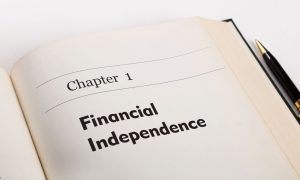Ever wonder why your neighbor with the fancy car is stressed about money? It’s a common story these days. Someone lands a six-figure job, buys all the “right” things, then discovers they’re broke. The math seems simple: more money equals more security. Reality proves otherwise. High earners often face the same financial anxiety as everyone else. Here’s why high income doesn’t equal financial freedom.
Six-Figure Struggles Around The Internet

Browse any financial forum and you’ll find shocking confessions. Lawyers making $200,000 complain about being broke. Doctors with prestigious practices worry about paying bills. These aren’t rare cases – they’re everywhere.
Recent studies reveal that 40% of Americans earning over $100,000 struggle financially. They juggle credit card debt, student loans, and overwhelming monthly payments. Their impressive salaries mask serious financial problems.
Take Reddit’s personal finance communities. Software engineers earning $150,000 can’t handle car repairs. Investment bankers making $300,000 lose sleep over job security. These smart professionals learned that paychecks don’t guarantee stability.
The stress never ends for these high earners. They work longer hours to fund expensive lifestyles. More income somehow creates more problems. Breaking this cycle becomes nearly impossible.
Living Beyond Their Means
The Trap of Lifestyle Inflation
Something weird happens when people earn more money. Their spending grows even faster than their income. Small upgrades become major expenses. Soon, that six-figure salary barely covers monthly bills.
Luxury cars stop being dreams and become “needs.” Private school tuition seems reasonable with a big salary. Designer clothes and expensive vacations feel justified. Each purchase makes sense individually until everything adds up.
High earners face unique social pressures. They live in pricey neighborhoods to match their status. Peers expect certain spending levels. Financial logic takes a back seat to social expectations.
Status Symbols and Social Pressure
Rich people’s social circles create spending obligations that others don’t face. Business dinners at expensive restaurants become routine. Professional events require costly clothes and accessories. These “necessary” expenses pile up fast.
Private jets and luxury trips become normal among wealthy friends. What once seemed crazy becomes expected. High earners feel forced to keep up or lose social standing. This pressure creates a spending trap that’s hard to escape.
Status symbols feel good temporarily but damage finances long-term. New luxury cars lose value immediately after purchase. Expensive watches and jewelry don’t make money or build wealth. These purchases feed egos while draining bank accounts.
How Does It Happen?
The Psychology of High-Income Spending
Smart professionals often know nothing about money management. Medical school doesn’t teach personal finance. Law school focuses on legal stuff, not wealth building. These experts succeed professionally but fail financially.
Steady paychecks create false confidence. High earners assume their income lasts forever. They make financial choices based on current earnings, not long-term planning. This shortsighted thinking leads to dangerous financial exposure.
Banks love lending to high-income professionals. Credit cards and loans come with high limits. These offers seem like opportunities instead of traps. Easy credit enables spending beyond actual means.
The Debt Accumulation Process
Student loans often start the debt cycle. Medical school graduates typically owe $200,000 or more. Law school creates similar debt mountains. These loans demand huge monthly payments for decades.
Credit card debt grows slowly through lifestyle inflation. Monthly balances seem manageable at first. High interest rates make everything worse over time. Soon, minimum payments eat significant chunks of monthly income.
Car loans add another layer of financial stress. High earners often finance expensive vehicles with big monthly payments. These loans trap them in debt cycles that limit financial flexibility. Cars lose value while debt remains.
Using Your Kids As An Excuse – Data Driven vs. Emotional Decision Making
The Private School Dilemma
Parents justify crazy spending by claiming it’s “for the kids.” Private school tuition becomes untouchable regardless of financial strain. The emotional need to provide “the best” overrides smart financial planning. This emotional spending destroys long-term wealth building.
Data shows expensive private schools don’t guarantee better outcomes. Many successful people attended public schools and state universities. The link between educational cost and life success is weaker than parents think. Yet emotional decisions continue driving spending choices.
Tax-advantaged 529 plans offer smart ways to fund education. These accounts let families save systematically for future educational costs. However, many high earners skip this planning and rely on current income instead. This approach creates unnecessary stress and debt.
Emotional vs. Logical Financial Planning
Emotional spending often disguises itself as logical choices. Parents convince themselves that expensive activities are “investments” in children’s futures. Youth sports leagues, music lessons, and tutoring create ongoing financial obligations. While some activities provide value, many are expensive substitutes for parental time.
Working long hours creates guilt that drives compensatory spending. High-earning parents buy expensive gifts to make up for missed time. This emotional spending creates financial stress while failing to address real family issues. Children often prefer parental presence over expensive purchases.
Financial professionals recommend evidence-based approaches to family spending. Emergency funds should exist before discretionary child expenses. Long-term savings goals shouldn’t be sacrificed for short-term emotional satisfaction. This disciplined approach builds real wealth while still providing for children’s actual needs.
The Power of Debt Freedom and Lifestyle Deflation
Breaking Free from the Debt Cycle
Debt freedom represents real financial power regardless of income level. Monthly payments that previously went to creditors can be redirected toward wealth building. This shift from debt service to asset accumulation creates exponential wealth growth over time. The psychological benefits of debt freedom are equally valuable.
Lifestyle deflation means consciously reducing expenses to accelerate wealth building. This doesn’t mean living poorly but rather living intentionally. High earners can maintain comfortable lifestyles while eliminating wasteful spending. The trick is distinguishing between genuine needs and manufactured wants.
Debt consolidation might provide temporary relief but doesn’t address underlying spending patterns. Balance transfers and personal loans might reduce monthly payments but extend debt duration. True financial freedom requires eliminating debt entirely rather than just managing it differently.
Building Wealth Through Intentional Living
Stealth wealth means accumulating assets while maintaining modest lifestyles. This approach prioritizes long-term security over short-term appearances. High earners who master this concept build substantial net worth relatively quickly. Their neighbors might not know their true financial position.
Investment accounts and brokerage accounts become priorities over luxury purchases. High-yield savings accounts protect emergency funds while generating returns. Taxable brokerage accounts provide investment opportunities beyond retirement plans. These accounts create passive income streams that eventually replace employment income.
Real estate investment offers another path to wealth building. Rental properties generate monthly income while appreciating over time. However, property management requires time and expertise that many high earners lack. Real estate investment trusts provide exposure without direct management responsibilities.
You Can Outspend Any Amount Of Money
The Infinite Expansion of Desires
Human desires expand to match available resources. Lottery winners often declare bankruptcy within years despite massive windfalls. Professional athletes earning millions still face financial difficulties. The problem isn’t insufficient income but rather uncontrolled spending.
Market research shows that luxury goods target high-income consumers specifically. Marketing messages convince earners that expensive items are necessities rather than luxuries. This psychological manipulation drives spending decisions that destroy wealth. Awareness of these tactics is the first defense against them.
Small businesses and entrepreneurship can provide additional income streams. However, business ownership requires capital investment and carries inherent risks. Many high earners lack the time or expertise to manage businesses effectively. Passive investment strategies often provide better risk-adjusted returns.
The Mathematics of Overspending
Interest rates on credit cards and loans compound against spenders. A $10,000 credit card balance at 18% interest costs $1,800 annually in interest alone. This amount exceeds many families’ annual vacation budgets. The mathematics of debt make wealth building nearly impossible without discipline.
Monthly savings goals should be established before discretionary spending. Automatic transfers to investment accounts prevent the temptation to spend first and save later. This approach ensures that wealth building occurs regardless of monthly spending variations. The key is making savings the priority rather than an afterthought.
Emergency funds protect against unexpected expenses that might otherwise require debt. Financial professionals recommend three to six months of expenses in liquid savings. This buffer prevents minor emergencies from becoming major financial setbacks. High earners often skip this step, assuming their income provides sufficient protection.
Hedonistic Adaptation
The Treadmill of Escalating Expectations
Hedonistic adaptation explains why income increases don’t create lasting happiness. People quickly adjust to higher living standards and seek even greater luxury. The pleasure from a new purchase fades rapidly, creating demand for the next upgrade. This cycle continues regardless of income level.
Research from behavioral economists shows that happiness increases with income only to a point. Beyond basic needs, additional income provides diminishing returns on life satisfaction. Yet consumers continue pursuing higher incomes to fund escalating lifestyles. This pursuit often reduces overall life quality through stress and overwork.
The comparison trap drives much of this adaptation. Social media showcases others’ highlight reels, creating artificial standards for success. High earners feel inadequate despite objectively comfortable situations. This psychological pressure drives spending decisions that damage financial security.
Breaking the Adaptation Cycle
Gratitude practices can combat hedonistic adaptation effectively. Regularly acknowledging current blessings reduces the desire for constant upgrades. This mindset shift allows appreciation of existing resources rather than constant seeking of more. The psychological benefits improve both financial and mental health.
Mindful spending involves conscious evaluation of each purchase decision. Questions like “Will this add lasting value?” and “Am I buying this for the right reasons?” prevent impulsive decisions. This approach doesn’t eliminate all discretionary spending but ensures it serves genuine purposes.
Long-term goals provide motivation for short-term sacrifices. Retirement planning and financial independence become more appealing than immediate gratification. Visual reminders of these goals help maintain perspective during tempting spending moments. The future self benefits from present discipline.
Conclusion
High income creates opportunities but doesn’t guarantee financial freedom. The path to true wealth requires discipline, planning, and intentional decision-making. Income provides the raw materials, but financial intelligence shapes them into lasting security.
The choice between lifestyle inflation and wealth building determines long-term outcomes. High earners who master this choice achieve financial independence relatively quickly. Those who don’t often struggle despite substantial incomes. The difference lies in priorities and discipline rather than earning capacity.
Financial freedom means having options rather than obligations. It provides security, reduces stress, and enables life choices based on values rather than financial necessity. This freedom is available to disciplined individuals regardless of their income level.
Also Read: 9 Ways HR Can Champion Pay Transparency In The Workplace
FAQs
Absolutely, if the lower earner saves consistently and avoids debt while the higher earner overspends and accumulates debt.
Financial experts recommend saving at least 20% of gross income, though higher percentages accelerate wealth building.
Research shows mixed results. Many successful individuals attended public schools, and the correlation between educational expense and outcomes is weaker than commonly believed.
Automate savings increases with income raises, maintain modest living standards, and focus on net worth rather than income as a success metric.





